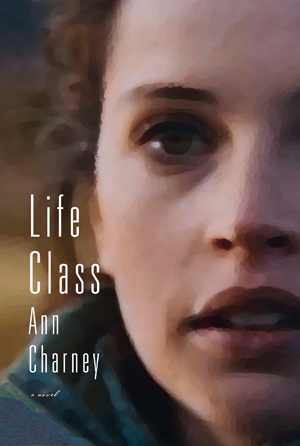Life Class
By Ann Charney
Cormorant Books
232 pages, $21.95
Reviewed by Margaret Thompson
Nerina, the protagonist of Ann Charney’s fourth novel, Life Class, is an unusually optimistic and determined refugee. She carries freight from her past in the former Yugoslavia, including a terror of dogs born of her experiences in war-torn Sarajevo, but she refuses to allow it to define her. As she remarks, “Just because you’re born in some unlucky place doesn’t mean you have to carry it with you for the rest of your life.” Even though she is scratching out a living as an illegal alien in Venice, she is determined to reinvent herself and find a place in the sun. The novel traces her path across two continents as she successfully pursues this aim, taking leaps of faith and constantly starting over from scratch.
She has help, from a succession of colourful characters. Helena, an elderly woman who makes a living as a go-between, linking artists and wealthy patrons in the art milieu of Venice, rescues her from sweeping the floor in a hairdressing salon and recommends her for a job with a rich American couple. Walter, aging and gay, ensures her access to the United States. Helena’s cousin, Leo Samuels, gives her a job and training when she arrives in New York, and even supplies a room for her to live in at the back of his framing shop. Even her romance with an up-and-coming artist, Christophe, is instrumental in taking her to Montreal and the possibility of some day starting her own gallery.
There is a lot to be said for a novel that is determinedly happy, in which characters uniformly beat the odds and find success, and do it against a background of great cities and beautiful countryside. But those odds exist in life; nobody’s path is entirely free of pitfall and calamity. Despite Nerina’s origins, there is a Teflon quality to her experience. In narrative terms, her story lacks any real conflict and that makes her journey flat and predictable where it should be inspiring. She encounters difficulties—a theft, no documentation, little knowledge of English, having to cope with a large dog, dependence on the goodwill of others—but the people she meets smooth each one away and on she goes. How significant it seems that her favourite character in the fiction she reads to learn English should be Becky Sharpe in Vanity Fair!
At one point in the novel, Walter quotes Robert Louis Stevenson: “Life is not a matter of holding good cards, but of playing a poor hand well.” This novel certainly shows Nerina doing that. We are entertained by her progress through the rarefied world of fine art and its patrons, but the lesson Nerina draws from her life class—she is “suddenly struck by the vast uncertainty of it all…yet, through all of it, life goes on, ordinary and mysterious, revealing the future in random slivers”—seems a disappointingly hollow outcome in a novel meant to be uplifting and life-affirming. One cannot help feeling that her friend Helena may have been closer to the mark and could have been speaking for all the characters in the book when she observes, “your change of fortune has more to do with dumb luck than skill.” And where’s the excitement in that?
Margaret Thompson’s new novel, The Cuckoo’s Child, will be published in 2014

{ 0 comments… add one now }